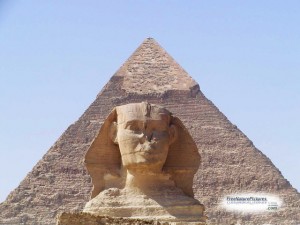 A recent finding that the ancient Egyptians and their modern counterparts share less – genetically – in common than you might think has been very intriguing to researchers and archeologists. A team of scientists from the University of Tuebingen and the Max Planck Institute for the Science of Human History in Jena, both in Germany, have decoded the genome of ancient Egyptians for the first time, with unexpected and surprising results. Their findings were recently published in the journal of Nature Communications.
A recent finding that the ancient Egyptians and their modern counterparts share less – genetically – in common than you might think has been very intriguing to researchers and archeologists. A team of scientists from the University of Tuebingen and the Max Planck Institute for the Science of Human History in Jena, both in Germany, have decoded the genome of ancient Egyptians for the first time, with unexpected and surprising results. Their findings were recently published in the journal of Nature Communications.
Their study concluded that preserved remains found in Abusir-el Meleq, Middle Egypt, were closest genetic relatives of Neolithic and Bronze Age populations from the Near East, Anatolia and Eastern Mediterranean Europeans. On the other hand, modern Egyptians, by comparison, share much more DNA with sub-Saharan populations. These new findings are not only intriguing but also have created major questions and re-evaluation of the region’s history and migration patterns.
It is important to note that ancient Egyptians have experienced more investigation and studies than any other ancient civilization. However, extracting genome data and utilizing this type of incredibly modern technology is a new frontier for Egyptologists. In this recently published study, scientists took 166 bone samples from 151 mummies, dating from approximately 1400 B.C. to A.D. 400, extracting DNA from 90 individuals and mapping the full genome in three cases. Previous DNA analysis of mummies has been treated with a necessary dose of skepticism, according to Professor Johannes Krause of the Max Planck Institute. We know that heat and high humidity in tombs, paired with some of the chemicals involved in mummification, all contribute to DNA degradation, but the paper describes its findings as “the first reliable data set obtained from ancient Egyptians” as reported by CNN and other international news outlets.
Next researchers looked for genetic differences compared with Egyptians today. They found that the sample set showed a strong connection with a cluster of ancient non-African populations based east of the Mediterranean Sea. The researchers describe the new findings as incredibly far reaching as the DNA is not just telling us about one person but about the ancestors and parents.
The scientists report that this period covered the rule of Alexander the Great (332-323 B.C.), the Ptolemaic dynasty (323-30 B.C.) and part of Roman rule (30 B.C.-A.D. 641) and they note that Strict social structures and legal incentives to marry along ethnic lines within these communities may have played a part in the Egyptians’ genetic continuity. The researchers also reported that the modern Egyptians were found to “inherit 8% more ancestry from African ancestors” than the mummies studied the report cites increased mobility along the Nile, increased long-distance commerce and the era of the trans-Saharan slave trade as potential reasons why.















